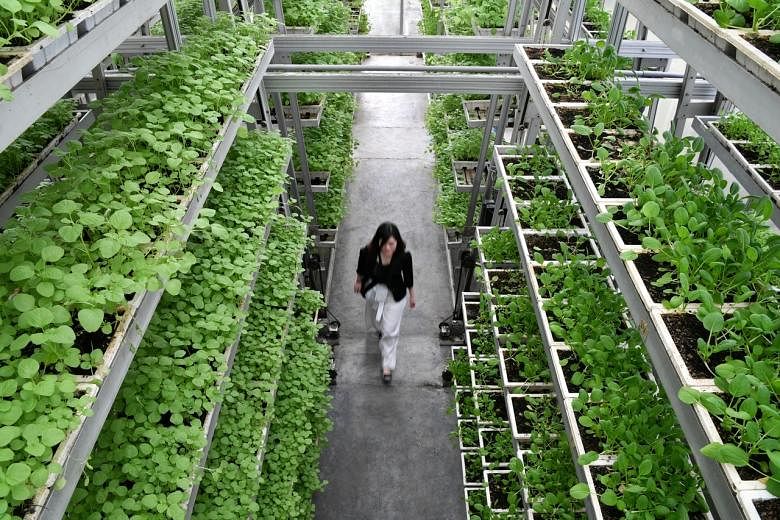Singapore-farmed fish, eggs and vegetables could appear on more menus and in shopping carts here next year, as a campaign to encourage Singaporeans to grow and eat local produce kicks off.
"Next year, my ministry will launch a campaign on the Singapore Food Story to encourage Singaporeans to grow and eat local produce," said Minister for the Environment and Water Resources Masagos Zulkifli, who highlighted the importance of the Republic's agricultural sector to buffer it against global food supply shocks.
Climate change and the die-off of bees due to the use of commercial fertilisers could result in food-producing countries no longer having enough to sell for export, he said.
This would spell bad news for import-dependent countries like Singapore, said Mr Masagos at the Asian Scientist Writing Prize Award Ceremony held yesterday at the Science Centre Singapore.
"We will either have to contend with higher prices, or face a food shortage. Therefore, it is important for Singapore to strengthen our food security - through food source diversification, growing local and growing overseas."
He did not give more details on the Singapore Food Story campaign.
The Singapore Food Agency has previously organised farmers' markets centred on local produce, and some supermarkets also carry "grow local, eat local" signs to highlight food items grown here.
Singapore produces less than 10 per cent of its food, but the Government is aiming for one-third of the Republic's food needs to be local-grown by 2030.
Mr Masagos said: "To do so, we will need to push the frontiers of (science and technology) to develop high-tech, climate-resilient and resource-efficient farms. This includes indoor vertical vegetable farms, close-containment floating fish farms and even alternative proteins such as plant-based Impossible Meat and cell-cultured meat."
Experts said the campaign to boost the profile of locally grown produce was timely, to ensure that the increase in supply of food grown here had a market.
Professor William Chen, the Michael Fam Chair professor in food science and technology at Nanyang Technological University, said there were multi-fold benefits to eating food grown locally.
Because the time from farm to table is shorter, produce may be fresher, he said. Certain items such as fruit may also be more nutritious when harvested ripe.
"Buying vegetables grown here would have a lower carbon footprint than vegetables grown in Malaysia, for example. And there would also be less food loss throughout the supply chain," he added.
The Singapore Environment Council reported in August that almost a fifth of all imported and locally farmed fresh produce in Singapore - or about 393,000 tonnes - is spoilt or damaged during storage, processing, packaging and transportation each year, amounting to a loss of $2.54 billion.



